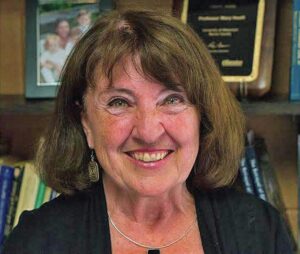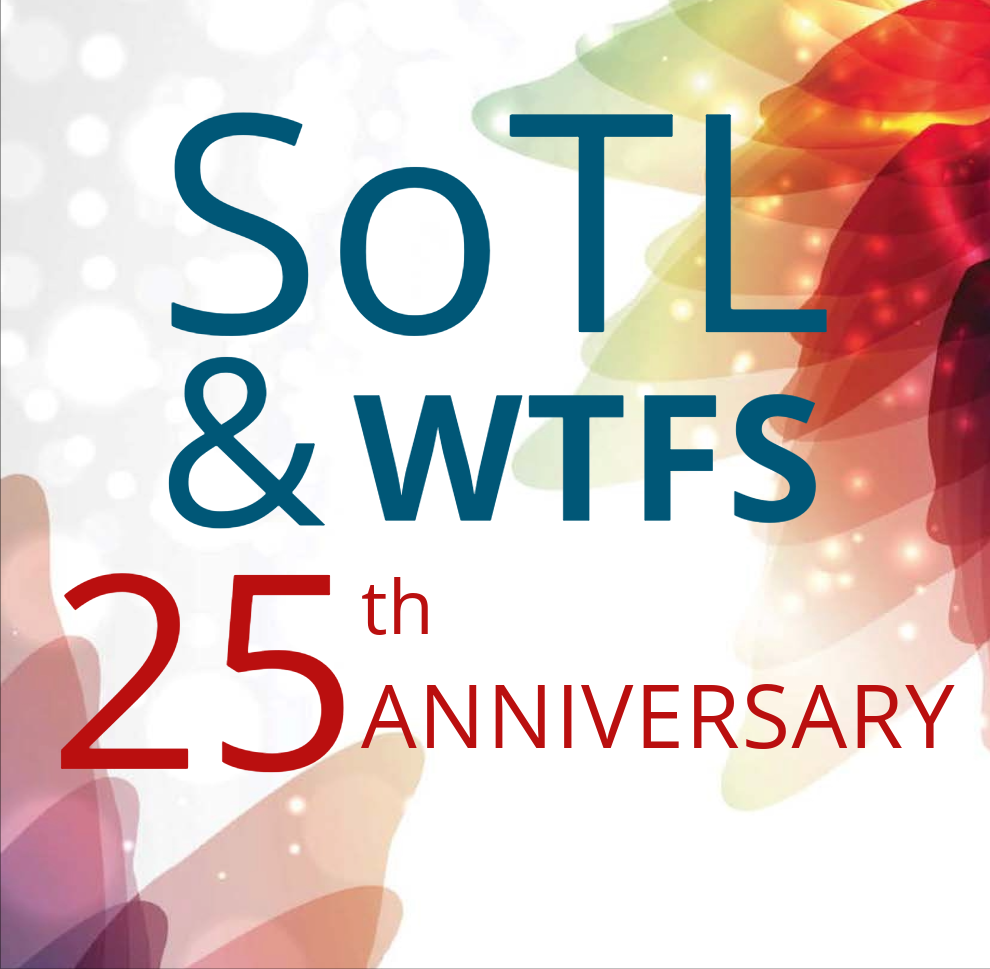University of Wisconsin-Eau Claire-Barron County
Professor Emeritus of Communication Arts and French 
Wisconsin Teaching Scholar, 2003-04
The Role that SoTL Played in My Career in Higher Education
The year 2004 was a transformative year in my career in higher education. I had been teaching in the Communication and Theatre Arts Department in Wisconsin’s two-year system since 1971 and held the rank of Full Professor. At that point, I knew nothing about the Scholarship of Teaching and Learning. That was about to change.
In 2004, I was chosen one of our System’s first Wisconsin Idea Fellows in recognition of work I was doing in Barron County as a Restorative Conference facilitator: bringing victims and offenders (mainly juvenile), face to face and offering them an opportunity to listen carefully to what each other had to say. That conference offered offenders the opportunity to make amends to their victims. It empowered victims with a voice and the opportunity to find peace. For 25 years, I have continued to facilitate victim/offender conferences, realizing how crucial listening is to healing.
In 2004, thanks to my new, young colleague Dr. Nancy Chick, I was about to discover how transformative the Scholarship of Teaching and Learning would be in my effort to facilitate student learning. I would be reminded once again of the crucial role listening plays in the learning process of both students and their professors.
In 2004, The UW System Office of Professional and Instructional Development (OPID) selected me as a Wisconsin Teaching Scholar. The questions I chose to investigate during my year as a Scholar were: 1. Why don’t university students read? 2. What can professors do to increase reading compliance? Why those questions? Because, after three decades of teaching, I was tired of sitting in the Commons and listening to colleagues ask, “Why aren’t my students reading?” It was time to stop wondering and find answers.
I surveyed students in two sections of the First Year Seminar course I taught. As a result of that survey, I identified the three main reasons why students claimed they hadn’t read their assignments. I also identified their top three pieces of advice that might have caused them to read what their professor had assigned, had the professor simply followed their advice. Now, my task was to find out if their advice worked.
Dr. Chick and I formed a learning community that consisted of three courses with the same 24 students enrolled in each course. In my Public Speaking course, I used one of the reading compliance suggestions offered by students. Dr. Chick, in her English course, used a second suggestion. Together, in the First Year Seminar course that Dr. Chick and I co-taught, we used the students’ third suggestion. Our findings were definitive. Yes, there was one teaching strategy that proved to be highly effective in causing students to read and retain what they had read. How exciting! How easy! And how grateful I was that I had listened to what my students had to say.
 As a Wisconsin Teaching Scholar, I was expected to present my findings at an international conference or make a concerted effort to have my research published. As a communications professor, I followed the logical path: I chose to share my research with an international audience. In 2006, I presented my findings at the ISSOTL International Conference in Vancouver, B.C., to a standing room only audience. In 2011, I presented my findings at the ISSOTL International Conference in Milwaukee, Wisconsin.
As a Wisconsin Teaching Scholar, I was expected to present my findings at an international conference or make a concerted effort to have my research published. As a communications professor, I followed the logical path: I chose to share my research with an international audience. In 2006, I presented my findings at the ISSOTL International Conference in Vancouver, B.C., to a standing room only audience. In 2011, I presented my findings at the ISSOTL International Conference in Milwaukee, Wisconsin.
I had shared my findings with outstanding SoTL Scholars at two international conferences. I had satisfied what was expected of me as a Wisconsin Teaching Scholar. But, thanks to the gentle push I got from Dr. Chick, I was on a path that would bring my research to tens of thousands of educators.
In 2011, I was chosen to participate in a SoTL Writing Initiative led by Dr. Chick and Dr. Renee Meyers, coordinator of the University of Wisconsin System’s SoTL Leadership Site. Nancy and Renee worked closely with several former Wisconsin Teaching Scholars, guiding us through what we needed to know if we hoped to get our work published. Thanks to that guidance, my research would soon reach all corners of the world.
In 2012, “Why University Students Don’t Read: What Professors Can Do to Increase Compliance” appeared in the International Journal for the Scholarship of Teaching and Learning. In 2019, in The Chronicle of Higher Education, Steven Johnson’s article, “The Fall, and Rise, of Reading,” identified my research as a seminal study in the field of reading compliance.
My SoTL research reinforced what I had always known as an educator. It is crucial to listen to our students, even though we may not always agree with what they have to say. As a Fulbright-Hays Scholar in Morocco and a Fulbright Specialist in Japan, I continued to listen, recognizing how closely listening is linked to learning.
I’m sure you’ve noticed that I have failed to say what students told me I needed to do if I wanted them to read. That was intentional. I hope you will read my research findings. I hope you will listen to the advice my students had to offer. I did, and it made me a better teacher!
You can access my IJSoTL article here. Enjoy!
And, you can read Steven Johnson’s article in The Chronicle of Higher Education here.
For readers who might not know Dr. Nancy Chick, my colleague and dear friend went on to become founding co-editor of Teaching & Learning Inquiry, the journal of the International Society for the Scholarship of Teaching and Learning. I am indebted to Nancy and forever grateful that I followed her advice.
As my career progressed, I continued to write, thanks to what I had learned in the SoTL Writing Initiative. My book From A Single Pebble: Barron County Restorative Justice Programs has helped people throughout the world understand the role restorative Justice plays in saving lives, reducing crime, and healing victims. My book The Betrayal of Officer Ryan Hoeft: A Conspiracy of Silence has helped police departments across the country understand the need for better training in the use of service weapons; training that saves lives.
Dr. Chick’s SoTL Writing Initiative opened doors to me as a communications professor. I had mistakenly identified myself only as a public speaker–not a writer. I was wrong. I am both! Thank you, Dr. Chick and thank you SoTL for making that clear to me.
Biography:
- Professor Emeritus—University of Wisconsin-Eau Claire-Barron County in Communication Arts and French
- Chancellor’s Career Award Recipient for Outstanding Teaching
- Fulbright-Hays Scholar to Morocco
- Fulbright Specialist to Akita International University in Akita, Japan
